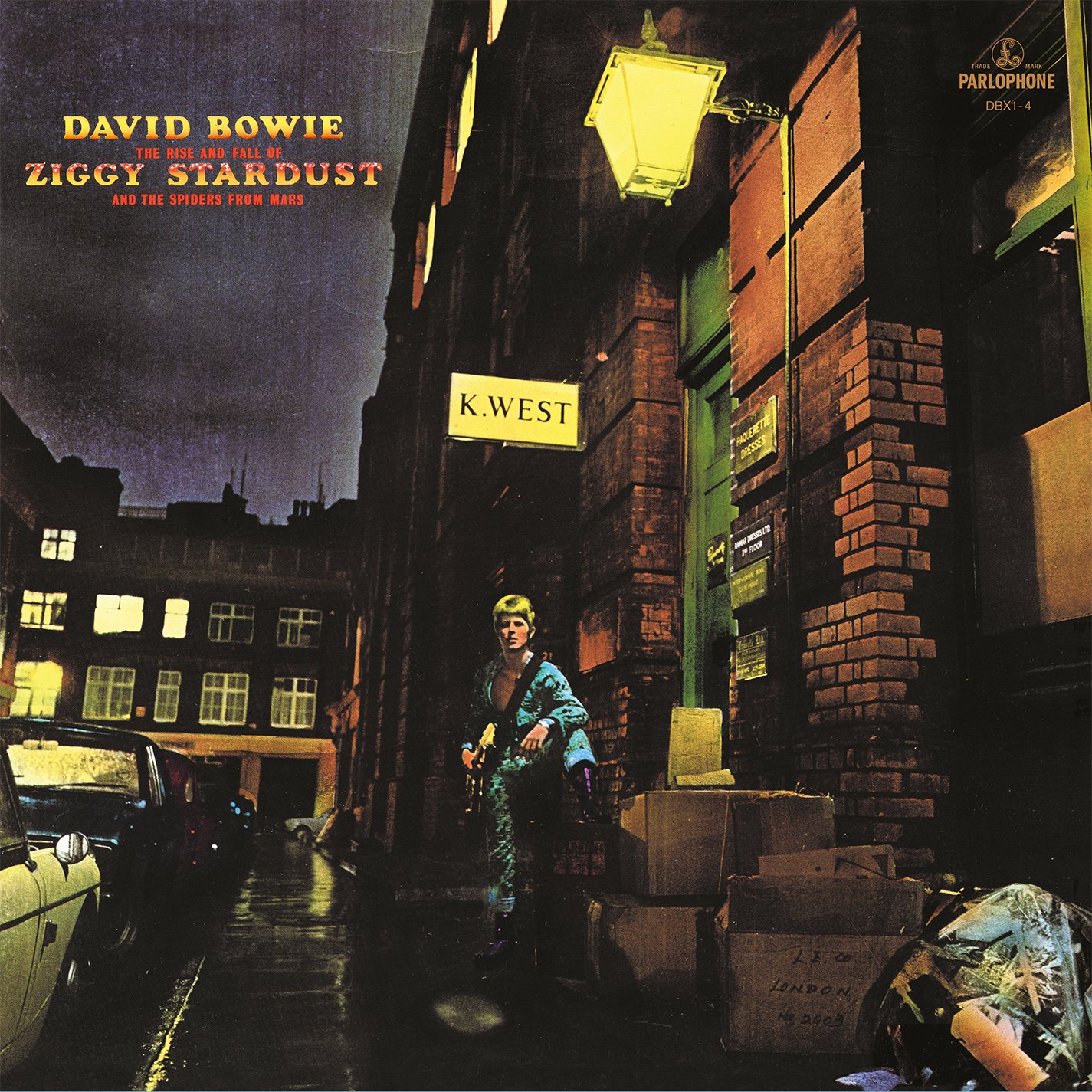
David Bowie – Ziggy Stardust
Alright, space cadets and glam rock aficionados, strap yourselves in. We’re about to blast off into the stratosphere of musical innovation with David Bowie’s “The Rise and Fall of Ziggy Stardust and the Spiders from Mars.” This isn’t just an album; it’s an intergalactic rock opera that’ll make you question your sexuality, your fashion choices, and possibly your entire existence.
Released in 1972, this record crash-landed onto Earth like a fabulous UFO piloted by a bisexual alien rock god. It’s as if Bowie looked at the music scene of the early ’70s and thought, “Needs more stardust and androgyny.” And boy, did he deliver.
Let’s start with “Five Years,” shall we? The album opener creeps in like an existential crisis wearing platform boots. Bowie’s voice, fragile yet powerful, delivers the news of Earth’s impending doom with all the drama of a Shakespearean actor who’s accidentally wandered onto a sci-fi movie set. By the time the strings swell to their climax, you’ll be ready to throw on some glitter and face the apocalypse in style.
“Moonage Daydream” swaggers in next, with a riff so chunky you could serve it on a platter at a glam rock buffet. Mick Ronson’s guitar work here is filthier than the floor of a dive bar after last call. And those lyrics? “I’m an alligator, I’m a mama-papa coming for you”? It’s like Bowie threw a dictionary in a blender and poured the results into a lava lamp.
Now, let’s talk about “Starman.” This track is catchier than the common cold at a kindergarten. That chorus will hook you faster than you can say “Hey babe, your hair’s alright.” It’s the musical equivalent of a warm hug from a sparkly alien – comforting, yet slightly unsettling.
“Ziggy Stardust,” the titular track, struts onto the scene like it owns the place – and honestly, it does. It’s a character study so vivid you can practically see the “screwed-up eyes and screwed-down hairdo.” Bowie paints a picture of rock ‘n’ roll excess so compelling that you’ll want to start your own band, if only to experience a fraction of Ziggy’s wild ride.
But the real knockout punch comes with “Rock ‘n’ Roll Suicide.” Starting as a quiet reflection and building to a life-affirming climax, it’s like watching a supernova in slow motion. When Bowie screams “You’re not alone!” it’s enough to make even the most jaded listener want to throw their hands up and embrace the nearest stranger.
Producer Ken Scott deserves a Nobel Prize in Chemistry for the way he alchemized these disparate elements into audio gold. The album sounds both intimately raw and cosmically polished, like it was recorded in a dive bar on Mars.
“Ziggy Stardust” isn’t just an album; it’s a portal to another dimension where rock stars are messiahs, guitars are interstellar communicators, and glitter is a basic food group. It’s a concept album that actually works, telling a story so compelling you’ll want to cancel your Netflix subscription and just listen to this on repeat.
In conclusion, “The Rise and Fall of Ziggy Stardust and the Spiders from Mars” is like that one wild night out that changes your life forever. It’ll reshape your musical taste, expand your mind, and probably inspire you to raid your mom’s makeup drawer. It’s not just ahead of its time; it exists outside of time altogether, in a glamorous pocket dimension where Bowie reigns eternal.
So, should you listen to “Ziggy Stardust”? Is water wet? Is space vast? Is Bowie the Starman waiting in the sky? The answer is a resounding yes. Just be prepared: once Ziggy gets inside your head, he’s not leaving anytime soon. And trust me, you wouldn’t want him to anyway. This album doesn’t just rock – it transcends.